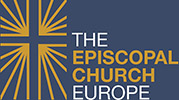Where the Good News of Jesus is preached, and the Sacraments of his New Covenant are faithfully celebrated, there the Church is found. The Church needs two things to live fully: liturgies that appeal to the original Christian tradition, using the whole Bible and the Apostles' and Nicene Creeds; and ministers ordained by bishops as successors of the Apostles who proclaim the Word of God and celebrate the sacraments faithfully.
The Bible is our foundation and provides all things necessary for salvation. Approximately 70% of The Book of Common Prayer -- that which dictates the teachings and worship practices of The Episcopal Church -- comes directly from The Bible. That is to say, our worship is filled with Scripture from beginning to end.
One of the defining ideas of Anglicanism is the theory expounded by the 16th century theologian, Richard Hooker, of a middle way (or in Latin, a via media) between the extremes of his day - Roman Catholics on the one hand, and the Puritans on the other. Hooker argued that while Scriptures were paramount, reason and tradition should be used to interpret.
The Episcopal Church takes reading the Bible very seriously. If Jesus Christ has no hands or feet or mouth but ours — if we are the Body of Christ — it is only in constant confrontation with the Bible that we can live into what we have been called and transformed to be. As so many Elders have remarked before, the Holy Spirit, a wild and indomitable Spirit, will always be working through the Scriptures and through us to accomplish our part of God’s mission in the Creation.
Blessed Lord, who caused all Holy Scriptures to be written for our learning: Grant us to hear them, read, mark, learn, and inwardly digest them. (BCP, Page 236)
Text includes excerpts from an article by The Rt. Rev. Pierre Whalon, © Anglicans Online, Publisher
___________________________________________________________________________________________
The Episcopal Church has authorized the use of the following translations of The Bible:
King James or Authorized Version (the historic Bible of The Episcopal Church)
English Revision (1881)
American Revision (1901)
Revised Standard Version (1952)
Jerusalem Bible (1966)
New English Bible with the Apocrypha (1970)
Good News Bible / Today's English Version (1976)
Revised Standard Version, an Ecumenical Edition (1973)
New International Version (1978)
New Jerusalem Bible (1987)
Revised English Bible (1989)
New Revised Standard Version (1990)
_________________________________________________________________________________________

